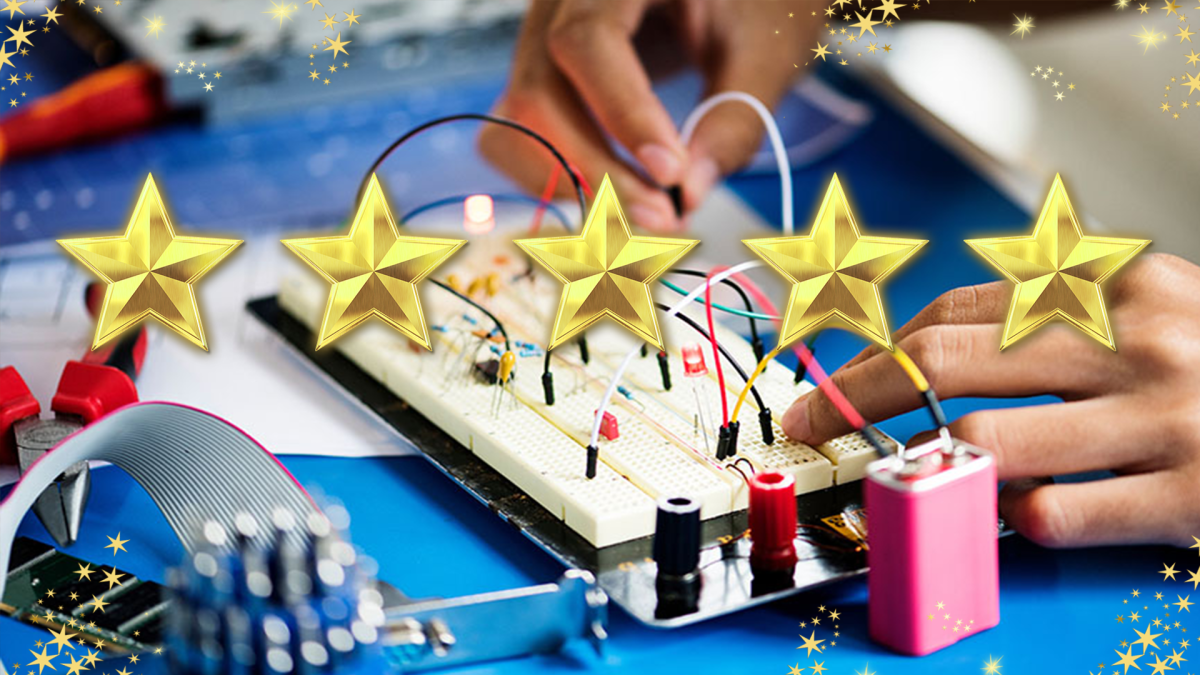Grades:
6th Grade
A mixture of 5E lessons on Nearpod and an accompanying hands-on activity to help students see that gravity works at a distance and is affected by mass. Students will be writing a conclusion based on
Grades:
8th Grade
In this lesson students will gather data about local tree diameters. They will then estimate the approximate age of trees. Students build connections between a tree’s growth and environmental factors
Grades:
8th Grade
Students code robots to match different distance time graphs. For each graph the teacher stamps their paper and they move on to the next more difficult one. Students will be able to replicate the
Grades:
2nd Grade, 5th Grade, 6th Grade, 8th Grade
This can be taught at different grade levels, diving deeper when possible. Just delete what you don’t need. Students will be creating their own crystal by following the scientific method, collecting
Grades:
3rd Grade
In this lesson, students will design a game to practice multiplication and division facts through 100. They will only be allowed to use the following materials: popsicle sticks, small stones, sidewalk
Grades:
5th Grade
In this fun lesson, students create models of the Earth, sun, moon, and planets that can go on robots. They experiment with light and movement to demonstrate the rotation of sun, earth, and moon using
Grades:
8th Grade
In this lesson, students will explore how biomes differ in different parts of the globe. They will identify differences between biomes and collaborate with peers to gather environmental science data
Grades:
4th Grade, 5th Grade
In this hands-on lesson, students design a safety device (car/seatbelt) that can keep an egg (passenger) safe during a collision. The goal is to protect the egg from cracking during a roll down a ramp
Grades:
5th Grade
In this lesson students will explain all three of Newton’s laws of motions. Students will collaborate and communicate effectively with their peers to complete an engineering design challenge to design
Grades:
Kindergarten, 1st Grade
In this fun lesson, students will develop a simple sketch and a physical model of a float to illustrate how the shape of an object helps it function as needed to solve a given problem. They will then
Grades:
5th Grade
Students will use the engineering design process to design, build, and test three different paper airplane designs. The goal will be to create one that can fly the fastest, one that can fly the
Grades:
6th Grade, 7th Grade, 8th Grade
This is an 8-lesson unit that is designed to be used together to learn about the health and diversity of your local watershed by placing leaf packs into a water source (natural or man-made ponds
Grades:
3rd Grade, 4th Grade, 5th Grade
Students will be learning and practicing the concepts of reflection and refraction through this engaging STEM activity.
Grades:
5th Grade
In this engaging and hands-on lesson, students will learn how crime scene investigators use science and engineering techniques and technology to solve crimes. Students will match substances based upon
Grades:
3rd Grade, 4th Grade, 5th Grade
An alternative way of farming to encourage people in a community that does not have agricultural land. Vertical farming is often a suggested solution for urban gardening and farming. It's also a great
Grades:
5th Grade, 6th Grade
This is an introductory lesson designed for a robotics after-school session involving materials and equipment from VEX robotics and coding. Students explore robotics, discuss the tasks robots can
Grades:
4th Grade
Students will be able to design a method of protection for the Earth’s land that would withstand the impact of rainfall on soil and prevent erosion. Students will discover that the soil with
Grades:
1st Grade
In this hands-on lesson, students will listen to "The Water Princess" by Susan Verde and then create their own water filtration system in a small group. Students will consider questions like, "How can
Grades:
6th Grade, 7th Grade, 8th Grade
This is an 8-lesson unit that is designed to be used together to learn about the health and diversity of your local watershed by placing leaf packs into a water source (natural or man-made ponds
Grades:
8th Grade, 9th Grade
Make quadratics come alive with stomp rockets! This is a 3-4 hour learning experience where students will build and launch paper rockets, then use the data to create quadratic equations.
Grades:
5th Grade, 6th Grade, 7th Grade, 8th Grade
Building on the programming concepts explored in part 1, this lesson asks students to re-imagine the ‘spiral-out’ program to be a spiral-in program instead. Designed to be a stepping-stone activity to
Grades:
6th Grade, 7th Grade, 8th Grade
This hands-on science lesson will help students get a more accurate view of the solar system by making a scale model with play dough, balloons, rulers, and tape!
Grades:
6th Grade
This is the second part of the egg drop challenge. Students will improve on their original design and make a new design to test and analyze.
Grades:
Kindergarten, 1st Grade
Students build the tallest beanstalk they can with the provided materials. They then measure it and compare their beanstalk heights. This pairs perfectly with a read aloud of Jack and the Beanstalk!
Featured Lesson Plans
Check out these notable lesson plans.

Grades:
2nd Grade
This lesson plan has three main objectives. The first is that students will be able to recreate a map of the canal with 3D structures along the way. The largest structure being Casa Grande, or the

Featured
Makey Makey with The Bionic Kid
Grades:
4th Grade
Imagine how cool it would be to build a video game controller out of bananas! In this engineering design challenge, you will learn how to use everyday items and a Makey Makey kit to design a

Grades:
Kindergarten, 1st Grade, 2nd Grade
This lesson combines ELA (reading and discussing the story), engineering (design a balloon with materials given and attach the balloon to an EdBot), and technology (code an EdBot to run the parade


